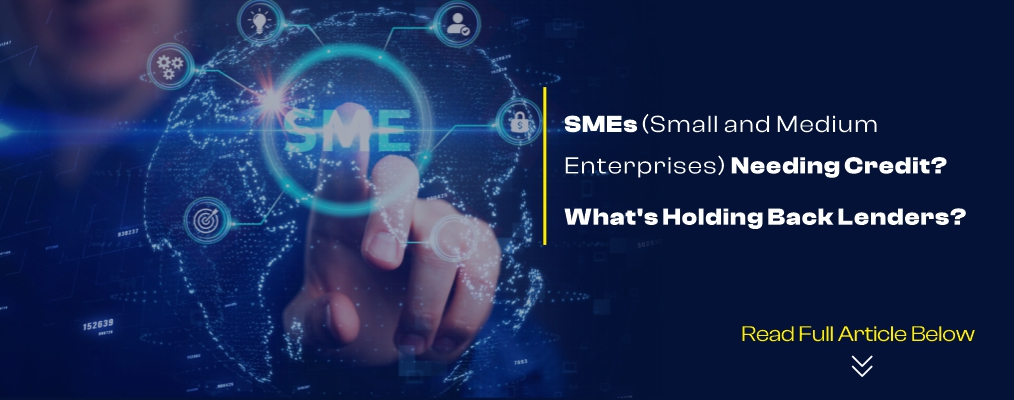Is yours a newly established start-up? Are you facing problems while looking for a loan to support your small enterprise? If yes, then you should know that it can really be challenging for people who own small or medium enterprises to attain a lender or commercial bank loan. Banks or lenders often don’t lend money to newly established start-ups as those are the riskiest investments for them. But to be honest, it really is unfair for small and medium enterprises as taking money out-of-pocket cannot be possible for a long time. Hiring new staff, opening new branches, setting up an office, and purchasing inventory require investment which can only be supported with the assistance of additional working capital. There are several reasons why lenders and mainstream banks deny loan requests from SMEs (Small and Medium Enterprises). Let us take a glance at a few reasons in detail –
1. Erratic flow of income – Mainstream banks only consider loan requests from those SMEs who have a predictable, substantial, and considerable cash flow every month. SMEs who do not provide proof of such stability and consistency of income stream is more likely to be rejected a loan from banks. The main aspect that concerns banks is whether the customer is capable of paying monthly installments on a regular basis while maintaining their payroll, rent, and other expenses. At times small businesses struggle in maintaining their bank accounts even while they are gaining profits just because they have to make upfront payments to their suppliers and other third parties before they get their pay in hand.
2. Lack of experience – Experience is like abstract proof for the banks and lenders. If the client or customer does not have a minimum of one year of experience in the industry, banks do not consider them for loans. They are considered incapable on the note that their income might not be consistent or even substantial for them to repay the loan.
3. Limited or lack of collateral – It is very well known that while filling the application for a loan, the bank asks for a valid piece of collateral for the bank to secure while the client obtains the money. Small and medium enterprises are mostly not provided loans due to a lack of proper or limited collateral. Though, that is not the case with large-scale business organizations and giant corporations who have high-value assets and real estate to surrender to the bank.
4. Poor and unreliable credit history – Before approving or even considering a customer’s business loan, they go through their loan application to review their credit history. If they have a clear credit score, the bank will be assured that the customer has no past of bankruptcy and can manage their corporate and personal finances well without fail in timely payments. Considering the other aspect, if the bank finds out the customer to have a poor and unreliable credit history, then they will be convinced that they are incapable of making financial commitments as per the loan agreements.
5. Elevated Regulation Standards – After the recession, regulation standards have been raised as banks have become more strict in their federal rules. Providing loans to SMEs is considered a risky investment when compared to well-established large-scale industries and firms.
6. Debt-to-income ratio – Sometimes, it so happens that SEMs request loans from banks while they are already indebted to other money lenders. When customers have outstanding debts with other banks or money lenders, then the banks tend to hesitate before providing them with loans. At times they reject loan applications from companies and firms who have taken up loans in the past as well. Business start-ups might secure advance cash or loans from multiple sources, especially during their initial set-up phase, which can be a disadvantage for them while applying for a loan from a standard mainstream bank.
7. Lack of guarantee – According to banks and lenders, newly set-up businesses, small and medium enterprises need to guarantee them the repayment of the loans borrowed by them. If they are not capable of personally guaranteeing them the repayment of the loan even in installments, then the banks do not consider them. Personal guarantees mean the customer is liable to repay the complete amount to the bank failing, which could cause unfavorable circumstances for the customers.

